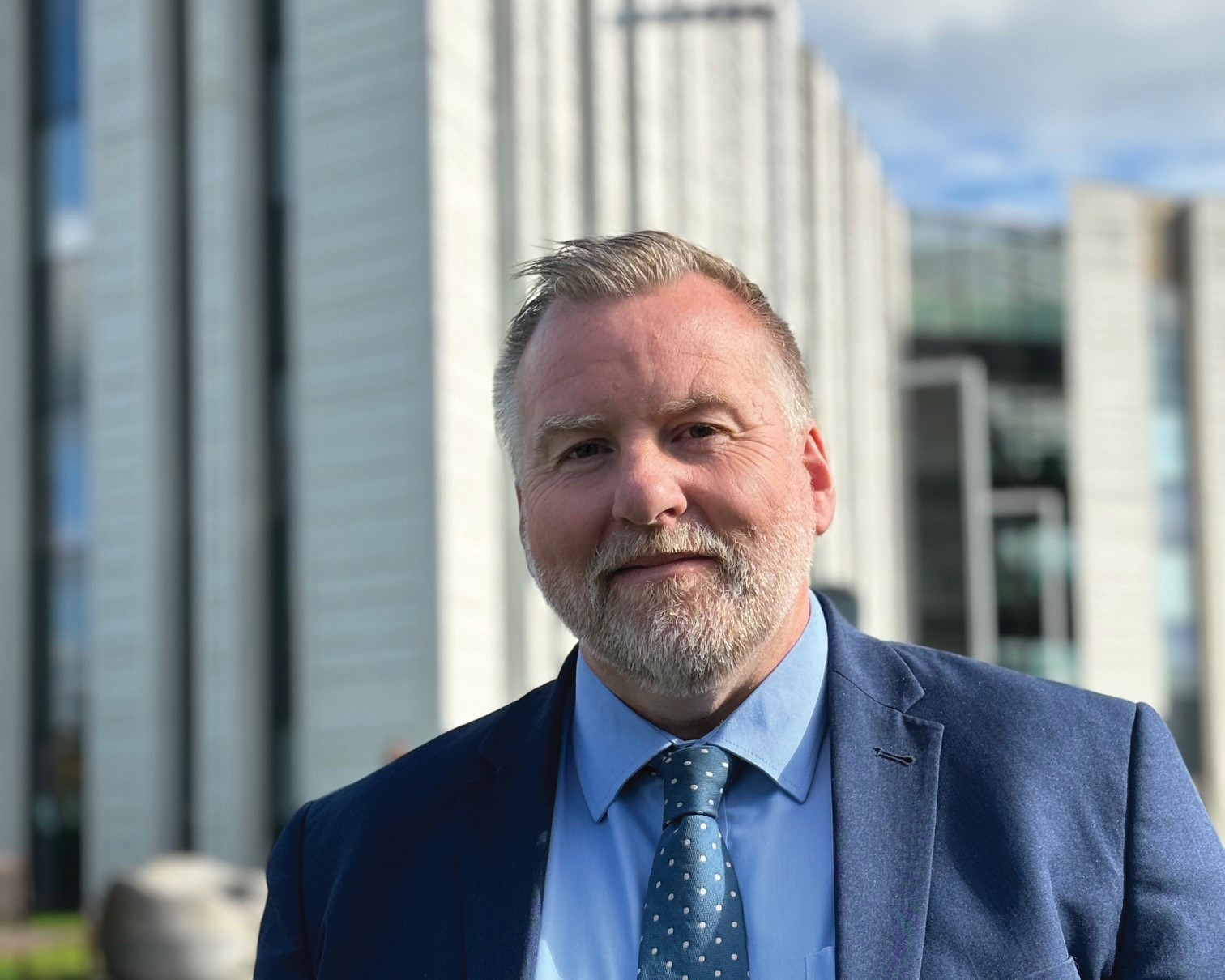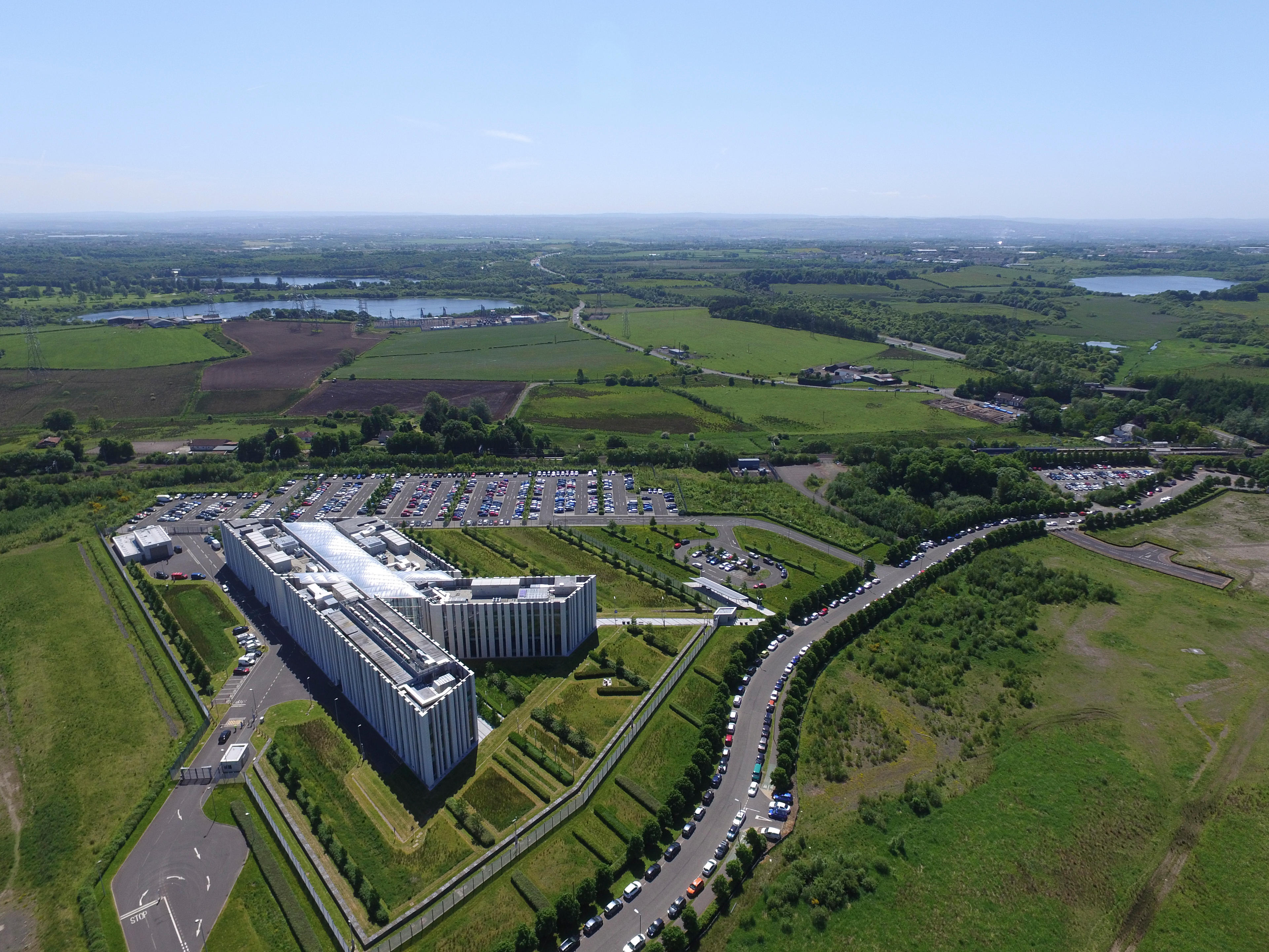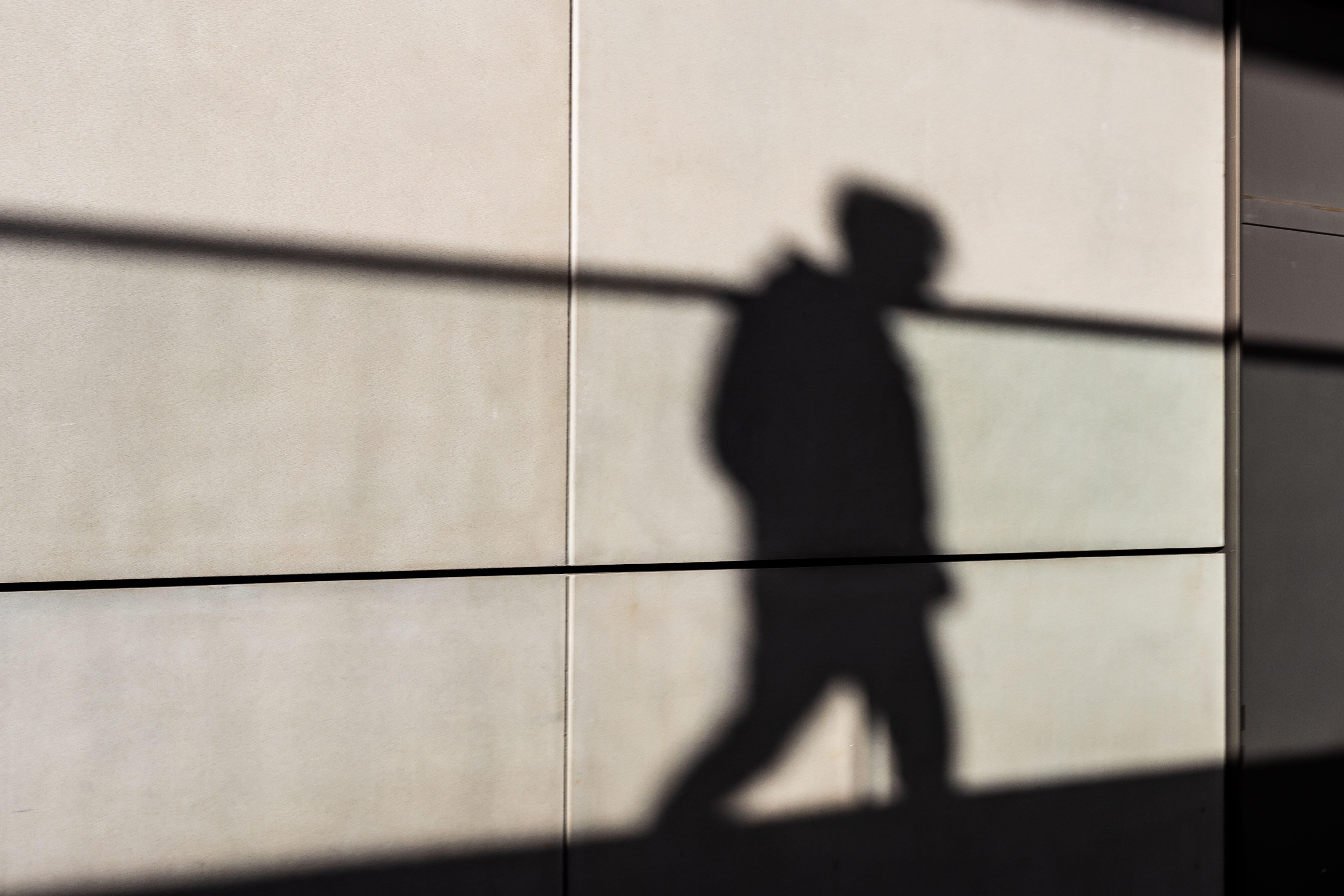Human trafficking: Scotland's role in a global battle against the gangs
In June, three people were sentenced for their part in a human trafficking ring that saw victims forced into prostitution in Scotland’s biggest cities.
Women, mainly from east Asia, were exploited in flats in Glasgow and Edinburgh to make money for a criminal gang with links across the UK. One of the properties used was just 50 yards from Edinburgh’s Royal Mile. Mother-of-three Qin Huang oversaw daily management of the victims from her suburban Glasgow home, while 38-year-old Xiao Min, based in Surrey, trafficked them across the border. Both admitted offences under the Human Trafficking and Exploitation Act between 2018 and 2021, while accomplice Guolei Huang, 35, was convicted of brothel keeping.
The High Court in Glasgow heard that they were part of a “sophisticated and significant criminal network”. The prosecution followed Operation Fasthold, a joint endeavour between Police Scotland and the Home Office.
And it came after the publication of official statistics that show cases of human trafficking and exploitation in Scotland have reached record levels.
Referrals to Police Scotland through the UK-wide National Referral Mechanism (NRM) were up 19.5 per cent in the last year.
Operated by the Home Office, the NRM identifies potential victims of human trafficking and modern slavery, and 184 cases were flagged to officers in Scotland. More than one quarter (28 per cent) involved Vietnamese nationals, with 13.5 per cent relating to Albanians and 13 per cent to British citizens. Victims were pushed into forced criminality (38 per cent), labour exploitation (36 per cent) and sexual exploitation (nine per cent).
But it’s accepted that the figures reveal just a fraction of what’s really happening in communities across the country. And as police work with international partners to disrupt the cross-border crime rings responsible for so much misery, lawyers say too little is done to rehabilitate the survivors subjected to degradation.
And while cases like that of Huang, Min and Huang create temporary headlines, there is no short-term fix for a problem with global drivers that is turning millions in profits for the gangs involved.
“There is a bit of a misconception about the level of human trafficking that happens in Scotland,” says Detective Superintendent (DSU) Steven Bertram, whose Specialist Crime Division based at the Scottish Crime Campus in Gartcosh, North Lanarkshire, is tackling modern slavery, human trafficking, prostitution and more in collaboration with forces in other jurisdictions across the world. A recent bust disrupted a gang worth £1m – which was just “the money we could see,” Bertram says.
“We look at forced criminality, whether that’s forced begging, forced shoplifting, being forced into drug cultivation. Think about poor souls sitting outside a shop begging; do they want to be there? Where’s the money going? It’s going back into the pockets of organised crime.”
It’s more than begging, shoplifting and the cultivation of cannabis. There are fruit-picking operations, nail bars, car washes, building sites and even social-care firms using fraudulent paperwork and bogus companies to operate in plain sight; their workers tricked, threatened, and controlled by the removal of passports, the allocation of debt that must be worked off, and the suggestion that non-compliance will mean violence, great shame, trouble for those back home, or a combination of consequences. “There are some real horror stories out there,” Bertram says.
“When I started in this job, I was explaining it to friends and family and the first thing they were saying is, ‘do you think you’re going to be busy there?’,” he says.
“We are really busy with the resources we have got. I don’t have the capacity to take every human trafficking inquiry that comes in. If there’s an impression that it’s not happening in Scotland, I’d say it very much is.”

DSU Steven Bertram of Police Scotland
The case of Mananchaya Wanitthanawet and Cameron Wilson is a case in point. Wanitthanawet, 40, trafficked Thai women and forced them into prostitution in Dundee, Aberdeen, Inverness, Edinburgh, Newcastle and elsewhere over a three-year period from July 2019. Wilson, 30, had been a punter before joining up with Wanitthanawet to launder the proceeds. Both were found guilty at the High Court in Dundee last month.
While immigration law is reserved to Westminster, human trafficking has been a specific offence under Scots law since the passage of the Human Trafficking and Exploitation (Scotland) Act in 2015, which increased the maximum punishment for offenders to life imprisonment and strengthened support rights for victims. But Anushya Kulupana, a senior associate at the Scottish Anti-Trafficking & Exploitation Centre run by legal charity JustRight Scotland, says victims still face a painful struggle.
The legal definition of trafficking is “dense and complex”, she says, and many of those freed from trafficking have never heard it before, and therefore cannot name what has happened to them. That means individuals can be missed, she says, further skewing statistics on what is really happening on our streets. Some, she adds, are so traumatised that they cannot tell officials what has happened to them.
“‘Recovered’ is the term that we use for people released from trafficking, because for the individual, it doesn’t feel like a rescue,” she says. “When there’s a raid by police, that’s another trauma, another terrifying situation for them. For us, it’s that job of showing that we understand that what has happened is something that has happened to other people. There is isolation within the experience.”
Claims of having been trafficked are often disputed, Kulupana says, and are treated by the Home Office through an “immigration lens”. “This is not about immigration; this is about victim care. This is about serious and organised crime,” she says.
“We are just not getting the full picture. We know lots of people are being trafficked through Calais, through small boats, through lorries that are coming across and through Stranraer from Belfast. We know that, so what is happening? What protection and support are the victims provided? There was a reason why that person was vulnerable in the first place.
.jpg)
Solicitor Anushya Kulupana specialises in cases involving survivors of human trafficking
“In their home country, someone says they’ll help them or give them some food, so they go with them. Next thing, they’re working in a garment factory in Russia, cutting wires in China. They are not allowed out, they are told, ‘we kept you safe’ or ‘you owe us’, then brought to the UK. We see the same routes time and again.”
Dame Angela Eagle, UK minister for border security and asylum, has said the new Labour government “will not stand by as criminal gangs exploit vulnerable people, risking their lives and giving them false hopes of a better life in the UK”. “Driven by greed, these gangs have no regard for human life or safety,” she said, and authorities are “taking the fight to them on all fronts”.
Eagle’s comments follow the arrests of more than 30 people across the UK in a joint operation targeting irregular migration in the Common Travel Area. Arrests of “suspected immigration offenders” were made at Loch Ryan Port, where ferries link Dumfries and Galloway to Northern Ireland, with others picked up at Liverpool and Luton. Police Scotland was one of the forces involved, alongside the Police Service of Northern Ireland, the National Crime Agency, Immigration Enforcement and other partners.
For Bertram, such collaboration is crucial, and Police Scotland has a presence at the headquarters of Europol in The Hague. Vietnamese officers were embedded at Gartcosh as the trafficking of their compatriots rose, with Romanian officers coming in afterwards because the scale of activity involving Romanians is far higher than that seen in official figures, Bertram says.
These are “huge, complex investigations”, he goes on, and he’s travelled out of Scotland to establish closer working relationships with foreign authorities. The joint working is not just about hard facts, but also culture and communication. “We’ve had some challenges with engagement with a lot of Romanian women we suspect have been exploited through prostitution,” Bertram explains, limiting the intelligence his officers can gather to take on the gangs. “How we can change things, how we should approach things to get that engagement?”
He gives the example of a woman who had been exploited and subjected to violence. “We were keen to see if she would stay in Scotland; she was adamant she didn’t want to be here a moment longer, which was understandable with what she had been through. We weren’t going to block that.” Support was put in place for her in Romania which led to a joint police operation between the countries. And, at a domestic level, Bertram and his team check out tips from the public and comb daily police records for potential links with trafficking. “For us, the starting place is, is this person a victim of trafficking? Part of that is to engage with police officers and say, ‘did you consider this from the outset?’

The Scottish Crime Campus at Gartcosh | Alamy
“It’s soul-destroying when you think there’s a human being at the heart of this that’s really seen as a commodity,” Bertram says, and though he is alert to the potential for “vicarious trauma” in his team, he believes he has “the best job in the police”.
“People think I’m joking when I say it,” he explains.
“They are really despicable people,” he says of the traffickers, “but they are really good at what they do. Where there’s a gap in the market, a gap in recruitment, there’s pretty much a certainty that somebody from serious and organised crime is going to make to move into that to make money.”
CASE STUDY: ‘N’, Vietnam, 25

Image | Alamy
‘N’ can’t be identified – it’s too dangerous. The traffickers who have dominated his life have found him too many times before. Finally, after so many temporary escapes, he hopes he is free of them for good.
Like many of those trafficked to Scotland, his story begins in Vietnam, where he grew up in a Catholic orphanage. His parents had taken him there as a young child when they went away to work and years later his younger brother had also been handed over.
By the time N was 11, tensions between the Vietnamese government and the Catholic Church had grown. A protest by parishioners turned violent and police were looking for those involved. A priest told N his name was on the list and it was no longer safe for him to stay there.
He was handed over to a man he believed to be another priest. Instead of finding safety, he was trafficked to Russia, where he spent two years in indentured servitude in a flat he was not allowed to leave. Handed over again, he was trafficked to Europe in the back of lorries, arriving at a warehouse where he was forced to work.
At 15 he was taken to England and made to work as a cleaner in a nail bar. There followed years of missed opportunities to free him from his traffickers – police raids would lead to temporary placements through social workers, but, broken down and highly vulnerable, N, who wound up in Scotland, would fall back into the hands of the organised gang once again. Sophisticated and well-connected, they’d find him through the Vietnamese community or social media, once even waiting for him as he stepped off a train in Edinburgh.
They’d tell him he owed them money, that they’d looked after him all these years, and that they knew who his brother was.
Things are still bad for me
Only now, at 25, is he free of them. That follows a three-year criminal sentence for cannabis cultivation following a police raid in Scotland. At each stage of the process, his lawyer Anushya Kulupana says, N’s status as a victim of crime was missed.
She is now working to have his conviction quashed and his immigration status formalised. And that means telling his story again and again. “I don’t like being reminded of what’s happened to me,” he says.
“It makes me sad. And things are still bad for me. I am not fortunate like others. I still have to talk about what’s happened to me to get any help. It doesn’t end.
“My life has been hard since I was small and I just want to have a peaceful life from now. But I don’t know if that will ever happen for me.”
Holyrood Newsletters
Holyrood provides comprehensive coverage of Scottish politics, offering award-winning reporting and analysis: Subscribe